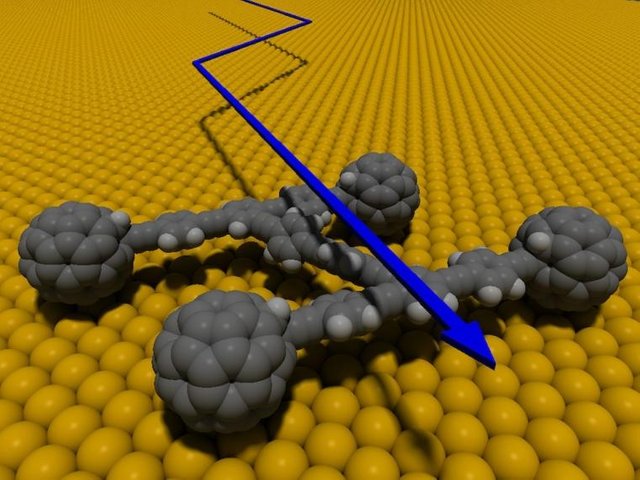Start your nanomotors, the most extravagant race of all time is about to begin!

The NanoCar Race is a competition of molecular sized machines that move through a nanocircuit, and can only be seen with a sophisticated microscope. These nanoches are propelled by pulses of electrical energy that move them over a surface of gold held at - 268°C.
The test will be the first of its kind and will last at least two days and two nights, including the time needed to build each participant's lane atom by atom. The event will be held in the near future (yet to be announced) at the Pico Lab of the Centre for Materials Processing and Structural Studies (CEMES / CNRS) in Toulouse.
But what is a nanocar?
A vehicle composed of a single molecule made up of about one hundred atoms and incorporating a chassis, axles and wheels that rotate independently. To get an idea of the scale we're talking about, think of one nanometer as one billionth (10 -9) of a meter. I mean, it is:
- 500,000 times finer than the line drawn by a pen.
- 30,000 times thinner than a hair.
- 100 times smaller than a DNA molecule.
- The size of 4 aligned silicon atoms.
The Nanocar Race has six confirmed teams, teams made up of scientists from various research centres who will run their cars under the watchful eye of a tunnel microscope, an instrument for taking images of surfaces at the atomic level that is the only device capable of following this unique Grand Prix.
This device will also be responsible for providing participants with the energy they need to move around. Each team will have a screen and a control to guide and manage their car.
And all this for what, you ask yourself? Well, to learn how to handle molecules capable of moving around a surface by transporting other molecules. It is not nonsense: the recent Nobel Prize in Chemistry went to the British chemist Fraser Stoddart, the Dutchman Bernard Feringa and the Frenchman Jean-Pierre Sauvage for "designing and producing molecular machines" controllable by means of energy supply: light, heat, electric charge...
Feringa and his team created a nanocar that moved on a metal surface powered by four molecular wheels controlled by light and electrical energy, and that opens the door to countless applications. For example, designing nano-robots that, once injected into the body, look for cancer cells to kill them.